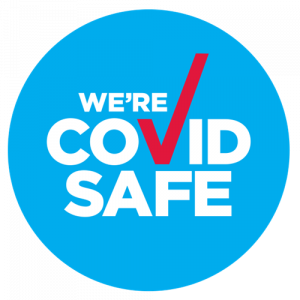Red Flags for Autism Spectrum Disorder (ASD)
Autism Spectrum Disorder (ASD) is a lifelong condition that affects 1 in 88 children. It impacts upon the way an individual interacts and communicates within their home, school and community environments.
Early intervention provides the best outcomes for children diagnosed with Autism Spectrum Disorder. The earlier a carer can identify symptoms in their child, the sooner therapy can commence to maximise a child’s potential in terms of both their expressive language skills and comprehension abilities. There are three major areas of functional difficulties experienced by a child that has been diagnosed with Autism Spectrum Disorder: communication, behaviour and social skills.
Communication red flags
Communication is a critical part of a child’s development and sets the foundation for building relationships. Autism Spectrum Disorder impacts upon children differently regarding their communication abilities. Some children will achieve all speech and language milestones and experience difficulties only with social communication and interaction when they grow older and go to school. Other children may have significant difficulty learning to talk and may need ongoing support to communicate their needs and want to others.
Speech pathologists assist people diagnosed with Autism Spectrum Disorder with their communication abilities. If your child displays the following symptoms, we recommend you get in touch with your general practitioner and a speech pathologist:
- No babbling by 11 months of age
- No simple gestures by 12 months such as pointing
- No single words by 16 months
- No two-word phrases by 24 months
- No response when their name is called
- Loss of any language or social skills at any age
Behavioural red flags
Children with Autism Spectrum Disorder often have differences in their behaviour in comparison to other children of the same age. Such behaviours include restricted and repetitive interests, problems with sleep, motor coordination issues and sensory processing dysfunction.
If your child possesses any of the following symptoms, it may be worth speaking with your general practitioner.
- Odd or repetitive ways of moving their fingers or hands
- Oversensitivity to certain textures, sounds or lights
- Lack of interest in toys, or plays with them in an unusual way (e.g. lining up, spinning, opening/closing parts rather than using the toys as a whole)
- Compulsions or rituals – has to perform activities in a special way or certain sequence and may be prone to tantrums if these rituals are interrupted
- Preoccupations with objects such as light switches, doors, fans, wheels
- Unusual fears
Social red flags
These red flags are more easily identifiable when your child begins to interact with other children on a regular basis. The symptoms below are a few of the many social red flags – your general practitioner and speech pathologist are the best professionals to contact when you recognise these symptoms in your child.
- Rarely makes eye contact when interacting with people
- Does not point to show things he/she is interested in
- Rarely smiles socially
- More interested in looking at objects than at people’s faces
- Prefers to play alone
- Does not make attempts to get parent’s attention
- Does not look when someone is pointing at something
- Seems to be “in his/her own world”
- Does not respond to parents attempts to play
- Avoids or ignores other children when they approach
Children, adolescents and adults living with Autism Spectrum Disorder each have unique challenges and differing abilities regarding their communication skills, behaviour and social skills.
Early diagnosis and early intervention is critical for maximising a child’s skills and providing strategies to assist with improving a child’s overall functional abilities.
Assessment and diagnosis of Autism Spectrum Disorder involves assessment by a medical practitioner, speech pathologist, psychologist and often also an occupational therapist. Anyone who is concerned regarding their child and a possible diagnosis of Autism Spectrum Disorder should speak with their general practitioner and a speech pathologist.
Support and assistance at any age can provide critical strategies to assist individuals with Autism Spectrum Disorder to engage and interact across home, education and community environments to their greatest potential.
Please contact our team today for more information on our services for Autism Spectrum Disorder.
Image source: Pexels





